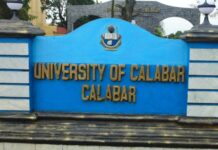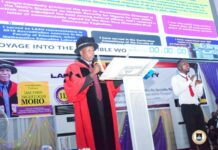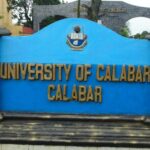Our world is changing faster than perhaps at any time in human history. Several factors conspire to drive this metamorphosis, such as new technologies that connect us all at the swipe of a screen; big data that promises small scale insight; climate change that drives invention through necessity; geopolitical conflicts; and the pandemic that has advanced medicine and changed behaviours.
The world in 2044 will be very different to that in 2024. As educators, we must do our best to equip students to be ready for this new world.
In the face of such transformation, a significant challenge for international qualification providers like Cambridge is recognition: ensuring that we develop the kinds of qualifications universities want – ones that help students not only ‘get in’ to university but equip students with the skills and attitudes to ‘get on’ when they get there, and that universities around the world continue to understand the value of our programmes.
To facilitate this recognition, we have assembled three higher education advisory councils (HEACs) to cover our global international education reach across 160 countries and 10,000 schools:
• The Strategic Higher Education Advisory Council (SHEAC) comprises senior enrolment staff from leading institutions in the US, Canada, Australia, Japan and the UK.
• The Australian HEAC includes representatives from the Group of Eight (Go8), the Australian Technology Network (ATN) and other key stakeholders.
• The Higher Education Advisory Council (HEAC) Europe consists of senior enrolment staff from leading institutions in key and emerging destination countries in Europe, along with some additional stakeholders.
These councils are vibrant platforms where the collective expertise of leading institutions helps us to shape our future qualifications. Together with these experts, we share insights, discuss challenges and work collaboratively towards solutions.
Diversity
As an example of the work of these HEACs, participants discussed college outcomes and subsequent course performance for Cambridge students at Florida State University at the inaugural SHEAC meeting.
SHEAC chair, Doug Christiansen, vice provost for university enrolment affairs, and dean of admissions and financial aid at Vanderbilt University, US, said: “As I reflect on the first meeting of the Strategic Higher Education Advisory Council, I am truly humbled to be leading these remarkably accomplished experts in higher education. With over 400 years of collective experience in the field, and with representatives from around the world, my colleagues on the council shared knowledge and advice, offering innovative ways to support the goals of Cambridge around the world.”
Going forwards, scheduled topics for discussion include:
• Cambridge’s development of digital assessments for high stakes (IGCSE and International AS & A Level) examinations. Countries have different admissions policies regarding digital examinations, and we want to consult on the evidence for equity between our paper-based and digital exams.
• How universities are correcting for bias when using generative AI for admission purposes and how they are working with students to use AI ethically and critically.
• How climate change education can be integrated across curricula.
The large diversity of our HEAC councils ensures that we continue to democratise education by considering aspects that are unique to different educational systems, socioeconomic situations and cultural nuances. This reach helps us ensure that Cambridge qualifications are adaptable and applicable to an ever broader spectrum of international students.
Our ambition is to diversify the membership of the advisory councils further in the future by adding an HEAC for the East Asia and Pakistan regions.
Jim Rawlins, associate vice-chancellor of enrolment management for the University of California, San Diego, said: “It continues to be of prime importance to me that Cambridge’s presence in the US leads to better outcomes for under-served students. In our meeting, I learned more about how the organisation is clearly focused on doing well in this regard, and on developing strong, long-term data that confirm successful outcomes for students.”
Expanding recognition
By involving these key stakeholders in the development of curricula and the refinement of qualifications, we aim to expand the recognition of a Cambridge international education even further and ensure that our students can pursue any degree at any university, choosing the right course to suit their ambitions.
Our online database currently includes higher education institutions worldwide which have provided us with their formal acceptance policies for Cambridge qualifications and we currently have a total of 4,612 such recognition statements across all qualifications with universities worldwide.
Most recently we added recognition statements for the Baltic States of Lithuania and Latvia, and we are working with the Ministry of Education, Culture, Sports, Science and Technology in Japan to establish their recognition of Cambridge qualifications.
Our global HEAC is an essential part of Cambridge’s unique ecosystem of educators, academics, policymakers and thought leaders around the world. Together we are striving to make students ready for the world, however it changes.
Kevin Ebenezer is head of global recognitions at Cambridge, International Education, United Kingdom.














